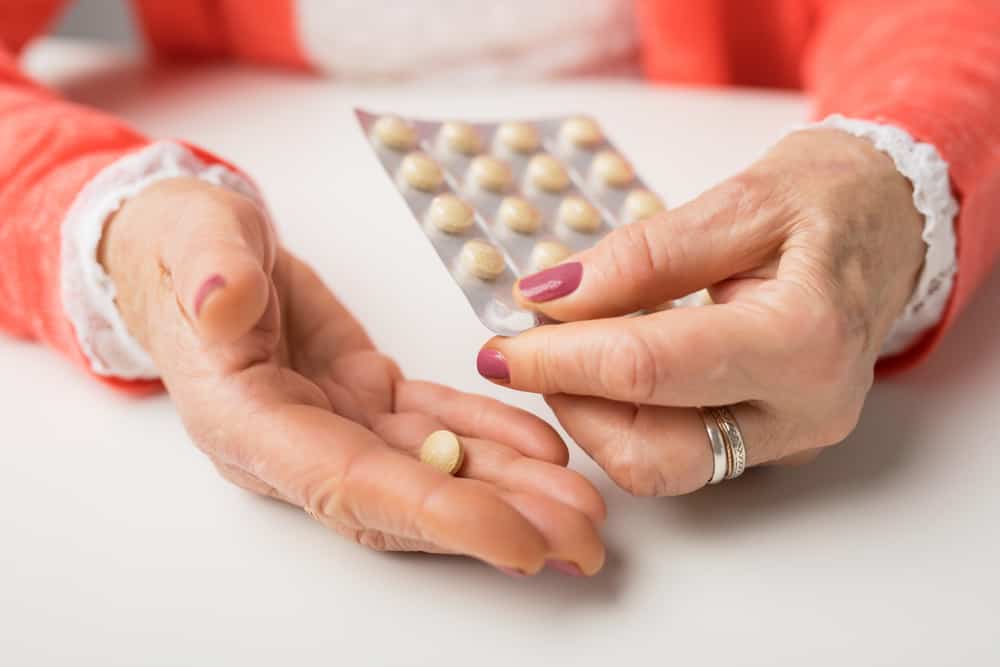Contents:
Medical Video: CAN YOU TAKE PRESCRIBED BENZODIAZEPINES Every Day? (For Depression & Anxiety)
Many chronic diseases require sufferers to take prescription drugs every day, such as arthritis, diabetes, hypertension, to HIV / AIDS. Some diseases require medication adherence because the disease cannot be cured and can only be controlled so that you can function normally like a healthy person in general, such as diabetes and hypertension. Other diseases require a routine schedule for taking prescription medication because of the long duration of treatment (eg TB and leprosy / leprosy).
But many people think that prescription drugs for chronic diseases only need to be taken when they have experienced severe symptoms. Many patients also think that the drugs they use do not provide enough improvement in their condition so they often choose not to drink the reason for fear of experiencing kidney damage due to consuming the same prescription drugs continuously.
In fact, if you often miss your prescription medication dose or you don't take it as recommended by your doctor, it's not just your disease that gets even more out of control - but also multiplies your risk for complications that can be fatal.
The importance of following a schedule and dosage of prescription drugs from a doctor
Compliance with medication means the obligation to take drugs that have been prescribed by a doctor. That is, the dosage dose of your drug must be right, consumed at the right time, in the right way, the frequency that has been set, and as long as needed. Why is this important? Simply put, not taking medication prescribed by a doctor or ordered by a pharmacist can make your illness worse, hospitalization, and even death.
It makes sense to think that once you manage your disease well, that means the end of the story: You are free from illness. But not so. Some diseases are a lifelong condition, and if you need to take drugs, you might need to keep using them for the rest of your life - with a few changes here and there depending on your disease needs / development.
What will happen if you stop taking medication without consulting a doctor?
Even if you feel fine, don't stop taking prescription drugs unless you get your doctor's approval after consulting. Stopping the drug dose too early can cause the disease to return, making it more difficult to treat or causing unwanted side effects.
People with type 1 diabetes, for example, are unable to make their own insulin, so they will always need to be injected with insulin every day. Some people with type 2 diabetes use drugs to maintain their blood sugar to be on the verge of being healthy, so it's important to keep consuming it to reduce the chance of heart disease and other health problems.
And if your doctor prescribes a statin drug to take once a day at night every day to control your cholesterol / high blood pressure, you must obey the doctor's orders even when your tension is not recurring. If you stop, blood pressure can rise again. Reporting from FDA, twenty-five to 50 percent of patients treated with statins who stop their therapy in one year have a 25 percent increased risk of death.
Is it safe to take the same prescription medication every day?
Many people intentionally do not take their prescription drugs or even tamper with their own recipes, arguing that they are afraid of experiencing kidney damage from consuming the same prescription drugs over and over.
The medicines your doctor prescribes are therapeutic drugs, which are specific drugs prescribed according to the standard dosage and amount that is safe to treat your disease. The concentration of the active ingredients of the drug has been adjusted according to the needs of the body, so that you can receive the drug's efficacy in its maximum potential but with unwanted or adverse side effects only at minimum or not at all.
However, there are indeed some medicines is nature toxic for kidney and liver health, such as Rifampicin (medicine for pneumonia, leprosy, tuberculosis) and some HIV drugs. In cases like this, the doctor will schedule regular liver and kidney function checks to monitor the health of these two organs.
Doctors have their own guidelines to help them decide what medication and what dosage to use to improve your condition, so of course doctors will not give doses that are harmful to you. Therefore, it is important to discuss the use of these drugs and alternatives that might be available with your doctor.
Always tell your doctor if you are using other drugs
If the doctor provides prescription medication for your condition, try to dig up as much information about the drug as you can, including how to use it correctly, possible side effects, and drug interactions.
All drugs have risks and benefits. The benefits of medicine are that they can improve your health and well-being by acting according to their functions, such as treating diseases, curing infections, or relieving pain. Drug risk is the possibility that something unwanted or unexpected will occur when you use these drugs.
Therefore, always tell your doctor or pharmacist about all of your medicines that you have used and / or are taking, including herbal products and non-prescription drugs. Be sure to include products such as painkillers, antacids, alcohol, herbal medicines, dietary supplements, vitamins, hormones, and other substances that might not be thought of as drugs. Also inform about your medical history and drug allergies. This is done to avoid the possibility of unwanted drug interactions and / side effects.












